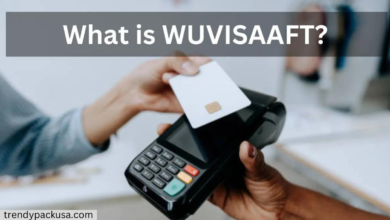Over the centuries, the way we control economic transactions has passed through huge modifications, driven with the resource of way of technological advancements and the ever-changing wishes of society. From the earliest barter structures to these days’s virtual bills, the strategies of converting charges have advanced dramatically. As we stand on the point of but a few other financial revolutions, propelled with the aid of manner of the rapid integration of digital generation into everyday existence, it’s vital to discover the historical improvement of financial transactions and feature a take a look at the present day-day techniques which is probably shaping the destiny.
The Journey of Financial Transactions: From Barter To Coinage
The story of monetary transactions evolved offevolved with the barter machine, the earliest shape of change. In this device, items and services were immediately exchanged without any standardized medium of exchange. While barter facilitated the alternate of value, it became inherently inefficient due to the need for a “double twist of fate of wishes”—every activity had to have a few components the opposite preferred.
The boundaries of barter brought on the development of coinage, with cash being some of the earliest types of standardized foreign cash. Coins crafted from valuable metals like gold and silver have emerged as considerably conventional due to their intrinsic fee. The use of coinage enabled extra inexperienced alternate and the buildup of wealth, laying the concept for modern economies.
The Emergence of Paper Money and the Rise of Banking
As societies prolonged and economies grew more complex, the impracticality of sporting big portions of coins turned out to be apparent. This assignment precipitated the appearance of paper cash, first utilized in China at some point in the Tang Dynasty (618–907 AD). Paper coins represented a promise to pay the bearer a selected quantity of gold or silver, making it less complex to transport and use for transactions.
The rise of paper cash additionally observed the emergence of banking structures. Initially, banks served as locations in which humans could shop for their gold and silver, and receiving paper notes in the past decreased. Over time, banks started issuing their private notes and offering loans, thereby facilitating change and trade. The banking system advanced right into a cornerstone of present-day economies, permitting massive-scale economic transactions and the development of credit rating structures.
The Digital Era: Credit Cards, Online Banking, and Mobile Payments
The twentieth century ushered in a digital revolution in financial transactions. The introduction of credit score gambling cards in the Nineteen Fifties marked a brand new generation in consumer finance, permitting people to make purchases without carrying coins, with the promise to pay later. This innovation converted the retail employer and laid the foundation for the digital rate structures we use nowadays.
The advent of the internet in the Nineteen Nineties similarly revolutionized financial transactions. Online banking emerged, permitting customers to control their rate range, transfer coins, and pay bills without visiting a physical financial institution. As e-trade grew, so did the decision for constant online rate techniques, mainly due to the improvement of digital wallets and price gateways like PayPal.
In the twenty-first century, cellular bills have taken the middle degree. With the sizable adoption of smartphones, customers can now make payments with an easy tap or experiment on their devices. Mobile price structures like Apple Pay, Google Wallet, and Samsung Pay have made transactions quicker and extra available, significantly lowering the need for physical cash.
QR Codes as a Modern Payment Method: Convenience and Efficiency
One of the maximum amazing advancements in monetary transactions in cutting-edge years is using QR codes as a price method. Originally evolved for tracking vehicle factors, QR codes have decided to amazing used at some stage in numerous industries, together with finance.
QR codes provide a fast and easy manner to finish transactions. Users can take a look at a QR code with their smartphone to make a charge. This method is mainly well-known in countries like China, in which cell price systems like Alipay and WeChat Pay dominate the marketplace. QR codes are also gaining traction in different factors of the world, such as the U.S. And Europe, as organizations recognize the gain and security they offer.
For investors, QR codes do away with the want for pricey point-of-sale (POS) structures, allowing even small businesses to receive virtual bills without difficulty. For clients, QR codes provide a seamless and contactless fee experience. The upward thrust of QR codes as a charge approach underscores the persevering impact of generation on how we conduct financial transactions.
For the ones seeking to combine QR codes into their rate structures, using a free QR code maker solution can streamline the method, permitting companies to speedy create and customize QR codes for numerous packages.
Cryptocurrency: Potential Future of Financial Transactions
While virtual payments have emerged as mainstream, cryptocurrency represents the cutting edge of financial transactions. Bitcoin, the number one cryptocurrency, was modified into introduced in 2009 as a decentralized virtual overseas money that operates without a central authority. Transactions are confirmed through blockchain generation, an ordinary and apparent ledger machine.
Cryptocurrency can revolutionize monetary transactions with the resource of offering decreased transaction prices, faster cross-border bills, and greater monetary inclusion for those without proper access to standard banking structures. However, cryptocurrencies additionally face worrying conditions, which include regulatory scrutiny, market volatility, and problems approximately safety and fraud.
Despite those demanding conditions, cryptocurrency adoption is developing. Major groups like Tesla and PayPal now accept Bitcoin as a form of charge, and governments around the arena are exploring the possibility of issuing their virtual currencies. As the generation matures, cryptocurrency may additionally additionally need to end up a mainstream approach of financial transactions within the destiny.
Conclusion: The Continuous Evolution of Financial Transactions
The facts of monetary transactions are a tale of innovation and version. From barter structures to cryptocurrency, the techniques through which human beings change value have constantly developed to meet the dreams of society. Today, we are witnessing a speedy transformation in how we conduct financial transactions, driven with the aid of upgrades in the virtual era.
As we look to the future, it is easy that financial transactions will keep complying, with new generations and techniques rising to make bills quicker, greater constant, and more reachable. Whether via QR codes, cellular bills, or cryptocurrency, the destiny of financial transactions is positive to be dynamic and thrilling, reflecting the ongoing integration of generations into our day-by-day lives.




